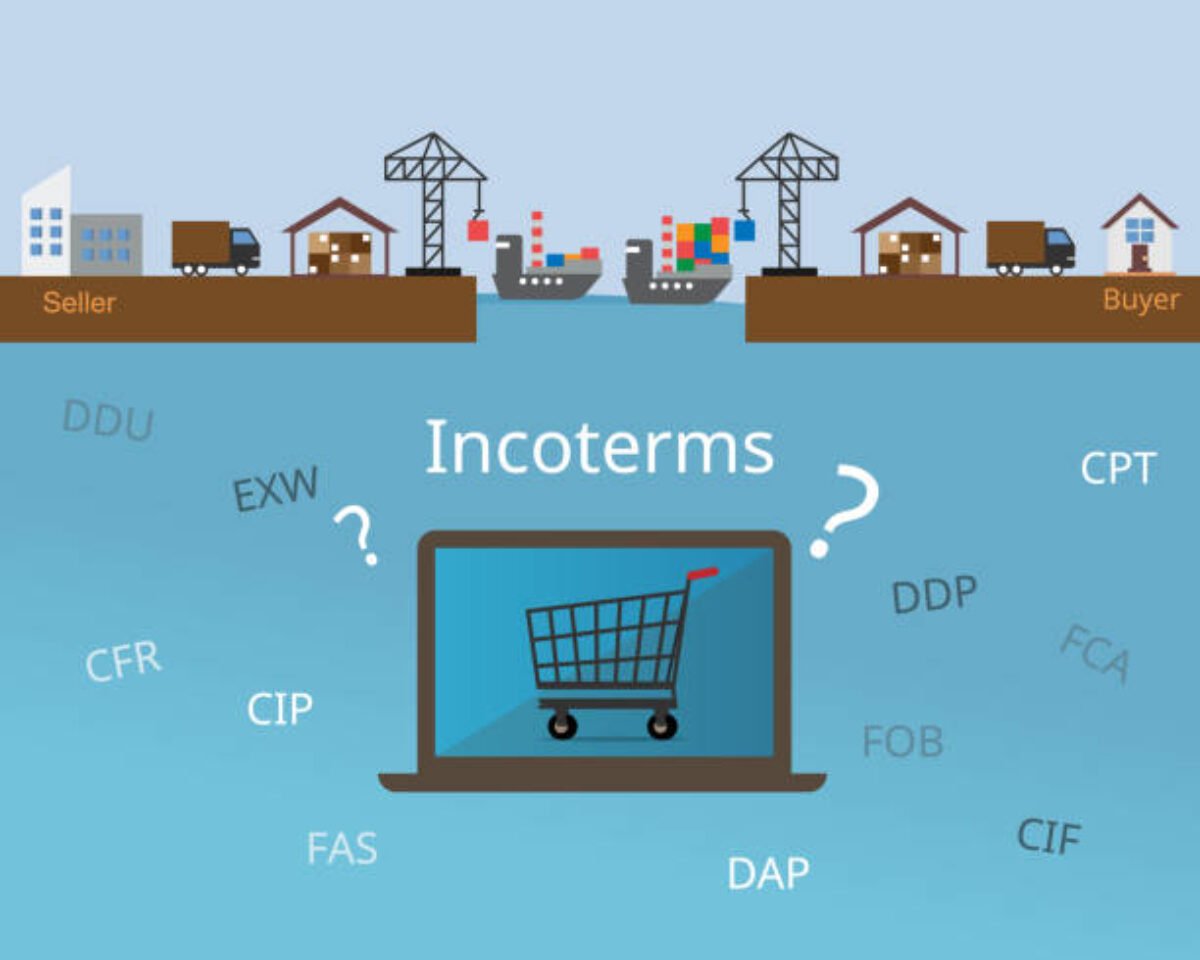
Incoterms Explained: FOB, CIF, EXW, DDP – A Simple Guide
If you’re into global trade, you’ve probably come across terms like FOB, CIF, EXW, and DDP. These are part of the official set of rules known as Incoterms (International Commercial Terms), created by the International Chamber of Commerce (ICC).
Incoterms define who is responsible for costs, insurance, risks, and transport at each stage of a shipment. In simple words, they make sure both the buyer and seller know exactly who handles what in an export-import deal.
But what do these terms really mean? Let’s break them down in easy-to-understand language.
What Are Incoterms?
Incoterms are standard trade rules used globally. They:
- Avoid confusion between buyers and sellers
- Define responsibility for transportation, insurance, and customs
- Help reduce disputes in contracts
Instead of writing long legal agreements for every shipment, businesses simply agree on an Incoterm, and both sides know their duties.
FOB – Free on Board
Under FOB, the seller delivers the goods onto the ship chosen by the buyer at the seller’s port. Once the goods are loaded, the responsibility shifts to the buyer.
- Seller pays for: Local transport, export clearance, and loading the goods on the ship.
- Buyer pays for: Ocean freight, insurance, unloading, import clearance, and final delivery.
Example:
An exporter in Chennai sells textiles under FOB terms. Once the goods are loaded at Chennai port, the buyer takes over costs and risks.
Good for buyers who want more control over shipping.
CIF – Cost, Insurance & Freight
Under CIF, the seller takes on more responsibility. They not only cover the cost of goods and freight but also provide minimum insurance up to the destination port.
- Seller pays for: Export clearance, freight, and insurance.
- Buyer pays for: Import clearance, duties, and local delivery.
Example:
An exporter in Mumbai ships spices to London under CIF. The seller arranges shipping and insurance until London port. After that, the buyer handles customs and inland transport.
Good for buyers who prefer the seller to manage shipping and insurance.
EXW – Ex Works
EXW gives maximum responsibility to the buyer. The seller simply makes the goods available at their factory or warehouse, and that’s it.
- Seller pays for: Nothing beyond making goods available.
- Buyer pays for: Everything—local pickup, export, freight, insurance, customs, and delivery.
Example:
A machinery exporter in Delhi offers EXW terms. The buyer must arrange pickup, export clearance, and transport all the way to their destination.
Good for sellers who don’t want to handle shipping.
Risky for buyers unfamiliar with foreign logistics.
DDP – Delivered Duty Paid
DDP is the opposite of EXW—the seller takes on the maximum responsibility. The seller delivers goods to the buyer’s doorstep, covering all costs including duties and taxes.
- Seller pays for: Everything—export, freight, insurance, import clearance, duties, and final delivery.
- Buyer pays for: Nothing (except unloading in some cases).
Example:
An exporter in China sells electronics to Germany under DDP. The goods arrive directly at the buyer’s warehouse in Berlin, fully cleared and duty paid.
Hassle-free for buyers.
High risk and cost for sellers, since they handle all import rules and taxes.
Comparing FOB, CIF, EXW, and DDP
Here’s a quick summary:
| Term | Seller Responsibility | Buyer Responsibility | Best For |
| FOB | Export, loading | Freight, insurance, import | Buyers who want control |
| CIF | Export, freight, insurance | Import duties & delivery | Buyers preferring seller-managed shipping |
| EXW | None beyond factory delivery | Everything else | Sellers wanting minimal duty |
| DDP | All costs including duties | Almost nothing | Buyers wanting hassle-free delivery |
Why Choosing the Right Incoterm Matters
- It affects the final cost of goods
- Defines who carries risk during transport
- Impacts cash flow and insurance coverage
- Ensures smooth customs clearance
Picking the wrong Incoterm can lead to unexpected costs, delays, or even disputes.
Conclusion
Understanding FOB, CIF, EXW, and DDP can make a huge difference in international trade. FOB and CIF are the most common, giving a balanced responsibility between buyer and seller. EXW shifts the burden to the buyer, while DDP gives sellers the toughest responsibility.
For every deal, think carefully: Do you want control over shipping, or do you want the other party to handle it? The answer decides which Incoterm is right for you.
In short, Incoterms are not just shipping jargon—they’re the foundation of smooth, cost-effective global trade.









